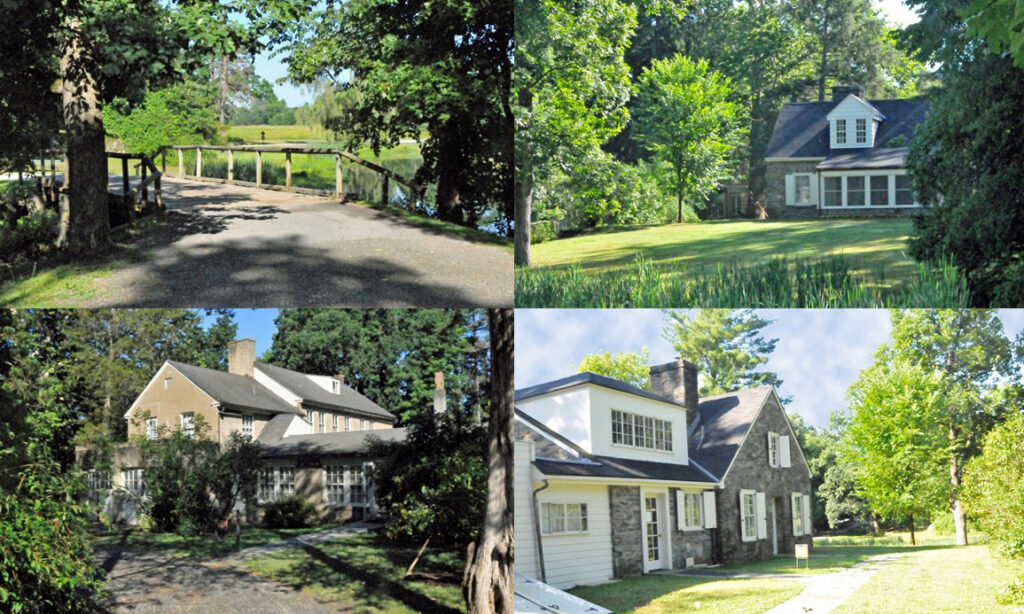Continuing our road trip to and from Cape Cod, today we make the second of three stops in Hyde Park, New York, visiting Val-Kill, the final home of Eleanor Roosevelt, wife of Franklin Delano Roosevelt (FDR).
Val-Kill, Dutch for “Valley Stream, lies along a stream two miles from Springwood, the house Eleanor and Franklin shared with his mother. FDR purchased the land in 1911 for family outings. In 1924, Eleanor and two friends, Nancy Cook and Marion Dickerman, planned a new use for the site. The original idea was for a rural retreat for the women that included a small shop for teaching woodworking. Construction of the Stone Cottage, designed in part by Franklin, an amateur architect, began in 1925. Before Stone Cottage’s completion in 1926, the women built a factory on the property for Val-Kill Industries, hiring unemployed artisans to create and sell reproductions of early American furniture. FDR was the first customer, purchasing furniture for his cottage in Warm Springs, Georgia. The women later expanded the factory and added a forge to produce pewter items. Val-Kill Industries, which served as a model for part of FDR’s New Deal, went out of business in 1936. Eleanor turned the factory into a residence, creating Val-Kill Cottage. When FDR died in Warm Springs in 1945, Val-Kill Cottage became her primary residence, where she hosted national and world leaders.
In 1977, Congress designated the 181-acre Val-Kill site as the Eleanor Roosevelt Historic Site “to commemorate . . . the life and work of an outstanding woman in American History.” Today, Val-Kill Cottage and Stone Cottage are open to the public, displaying exhibits about Eleanor and Franklin Roosevelt and the use of the property. The site also includes the Doll House that Eleanor moved to Val-Kill for use by her grandchildren and the Playhouse, which once housed the forge.
